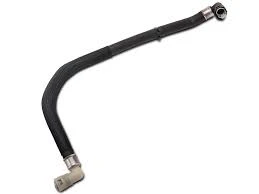diesel heater fuel pipe
ഒക്ട് . 14, 2024 20:55 Back to list
diesel heater fuel pipe
Understanding Diesel Heater Fuel Pipes Key Features and Importance
Diesel heaters are widely used for various applications, including residential heating, marine heating, and vehicle heating systems. A crucial component of these heating systems is the diesel heater fuel pipe. This article will explore the importance of fuel pipes in diesel heaters, their key features, and considerations for proper maintenance.
The Role of Diesel Heater Fuel Pipes
The primary function of a diesel heater fuel pipe is to transport diesel fuel from the tank to the heater. This process involves the movement of fuel in a steady and controlled manner, ensuring that the heater operates efficiently and effectively. A properly functioning fuel pipe is essential for maintaining the optimum performance and longevity of the heating system.
Fuel pipes in diesel heaters are designed to withstand high pressure and temperature fluctuations commonly encountered in heating applications. They must be resistant to corrosion, wear, and other environmental factors. Choosing the right material and thickness for the fuel pipe is crucial, as it impacts both the performance of the heater and the safety of the system.
Key Features of Diesel Heater Fuel Pipes
1. Material Diesel heater fuel pipes are typically made from materials like stainless steel, nylon, or rubber. Each material has its advantages; for instance, stainless steel offers excellent durability and resistance to corrosion, while nylon is lightweight and flexible.
2. Diameter The diameter of the fuel pipe affects the flow rate of diesel fuel. A pipe that is too small may restrict fuel flow, leading to inefficient heating, while a pipe that is too large may not generate the necessary pressure for optimal performance. It’s essential to select the right diameter based on the specifications of the diesel heater.
diesel heater fuel pipe

3. Length The length of the fuel pipe has a direct impact on fuel delivery and pressure management. Longer pipes may lead to increased resistance and can affect the heater's performance. Therefore, keeping the fuel line as short as feasible while still accommodating the installation requirements is advisable.
4. Fittings and Connectors Proper fittings and connectors are integral to the system's integrity. They prevent leaks and ensure a secure connection between the fuel tank, fuel pipe, and the heater. Regular inspection of these components is necessary to detect any signs of wear or damage.
Maintenance Considerations
Maintaining the diesel heater fuel pipe is vital for the overall health of the heating system. Regular inspections can help identify any potential issues such as leaks, clogs, or deterioration of the pipe material. It is also important to ensure that the connections are tight and free of debris or corrosion.
If any damage is found during inspections, timely replacement or repair of the fuel pipe can prevent more significant problems down the line. It’s also advisable to use high-quality fuel to reduce the build-up of sludge or contaminants in the fuel system.
Conclusion
In conclusion, the diesel heater fuel pipe is a critical component that plays a vital role in the effective functioning of diesel heating systems. Understanding its features and the importance of maintenance can lead to improved performance and longevity of the heater, ultimately ensuring a safe and efficient heating experience. By paying attention to the details and conducting regular inspections, users can enjoy the benefits of a well-maintained diesel heater for years to come.
